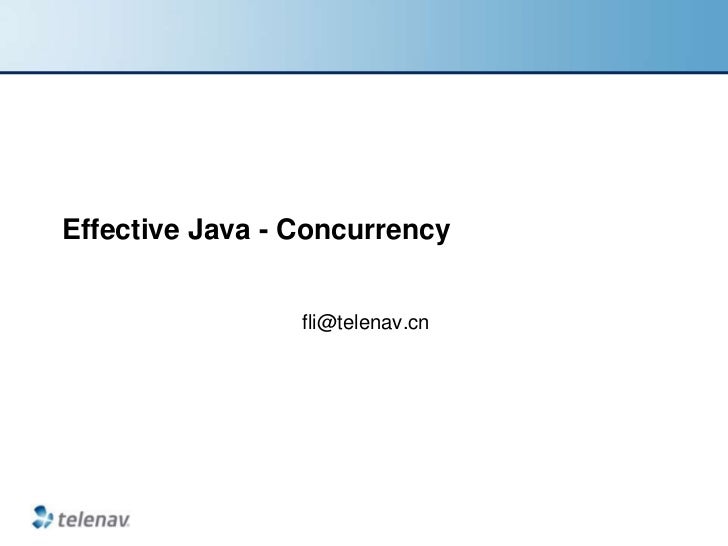Is Java Concurrency in Practice still valid? I am wondering whether the ideas, concepts and implementation described in the book are still compliant with the latest Java versions.
Xiv Java Concurrency In Practice Chapters 2 (Thread Safety) and 3 (Sharing Objects) form the foundation for the book. Nearly all of the rules on avoiding concurrency hazards, constructing threadͲsafe classes, and verifying thread safety are here. Readers who prefer 'practice' to 'theory' may be tempted to skip ahead to Part II, but make sure.
I ask because the latest edition was done in 2006.
closed as off-topic by Martijn Pieters♦Jan 9 '17 at 9:32
This question appears to be off-topic. The users who voted to close gave this specific reason:
- 'Questions asking us to recommend or find a book, tool, software library, tutorial or other off-site resource are off-topic for Stack Overflow as they tend to attract opinionated answers and spam. Instead, describe the problem and what has been done so far to solve it.' – Martijn Pieters
9 Answers

Yes, it's still valid in my mind. There isn't big change in this area from 6 to 7. Fork-join is a new feature, which is very suitable for divide-and-conquer type of problems. But all the existing stuff inside the book, such as synchronization, volatile, servlet, are still very valid.

While my perspective may be biased, my current intention for updating the book would be almost strictly additive, covering fork-join, parallel decomposition, and the new parallel bulk data operations coming in Java SE 8.
I bought this book in 2013. I had very serious doubts that it would be current and useful given that this edition was published so long ago. The technology world moves quickly, and software technology even faster. Even so, this book is foundational. The concepts and practices that are discussed are more underpinnings for good software design and engineering than updates on the latest and greatest API's. This book has been indispensable, and I am glad that I got it before I had decided to write even a single line of concurrent code. It's probably saved me countless hours.
Yes definitely it's still valid, but I will recommend in addition or as an introduction The Well-Grounded Java Developer a well written book with a chapter on modern Java concurrency techniques and nicely done examples.

I would say so. JDK7 adds the fork-join framework but that is an enhancement rather than a replacement for earlier concurrency tools.
Yes. Very much. You can always keep track on new things being introduced in Java, however, the book does a fine job of explaining the fundamentals.
If it helps, this comes from a full time researcher in concurrency and parallelism using OOP.
Yes. Still it is valid and i have got good feedback from my friends. It is one of the best book for learning the concurrency in java. You can read the review for Java Concurrency In Practice
Java Concurrency In Action
If you are going to start your project using Java 8 you might want to consider fresh books and tutorials as well because of new stuff appeared in Java 8 like streams,lambdas and new atomics - that changes development methods a little bit.
Well, the book looks promising when I read certain preview chapters online. It gives enough insight on Java and general concurrency aspects. One can keep this book as a handy outfit when designing and implementing both naive and sophisticated concurrency applications.